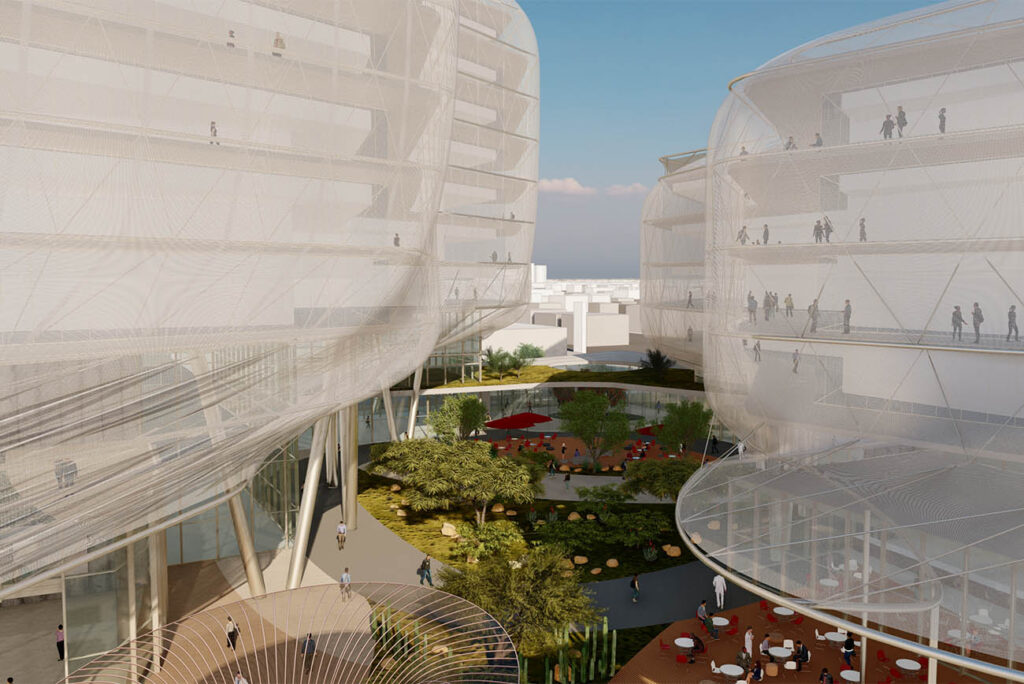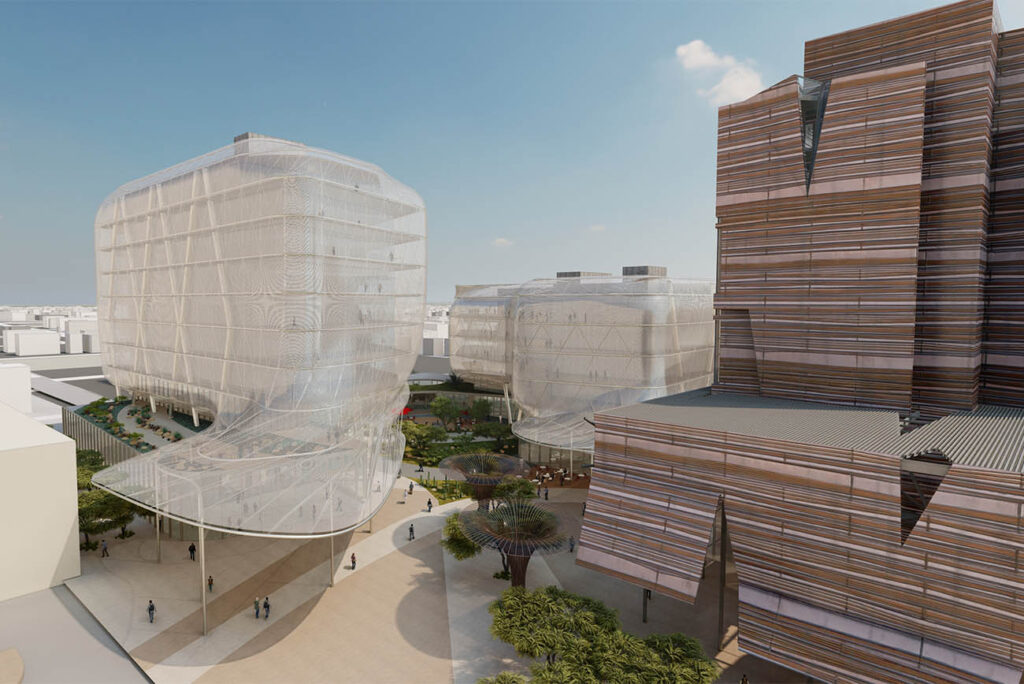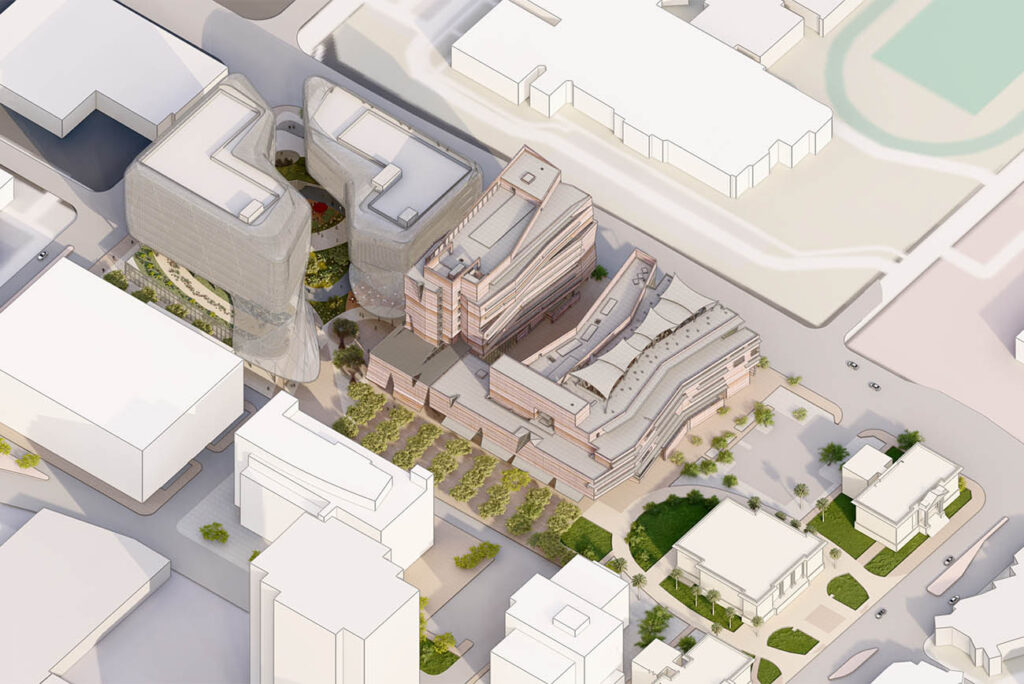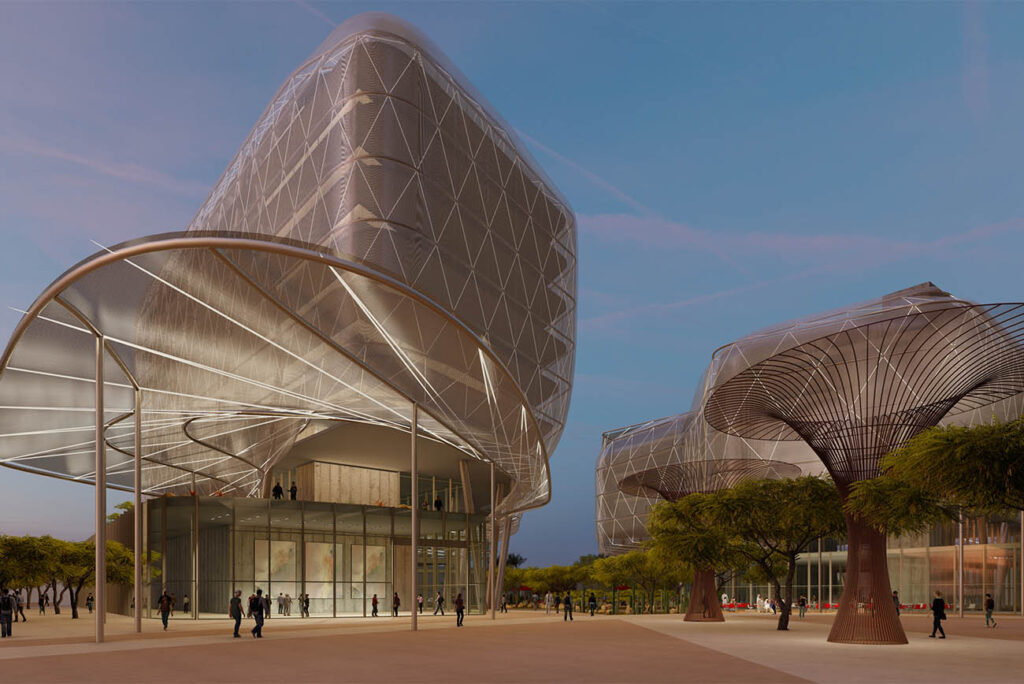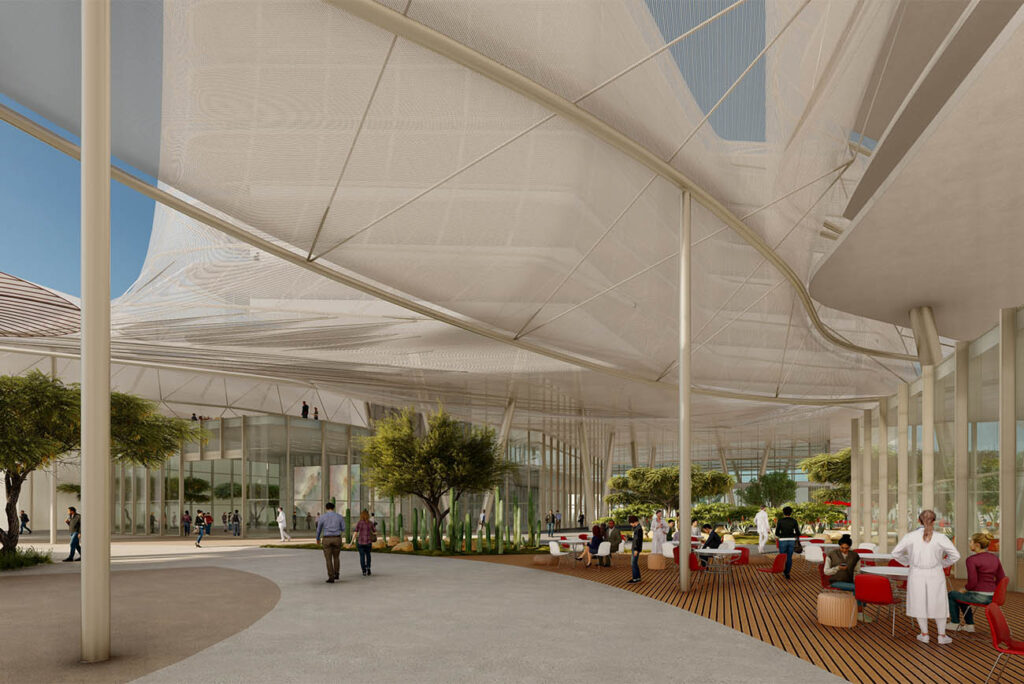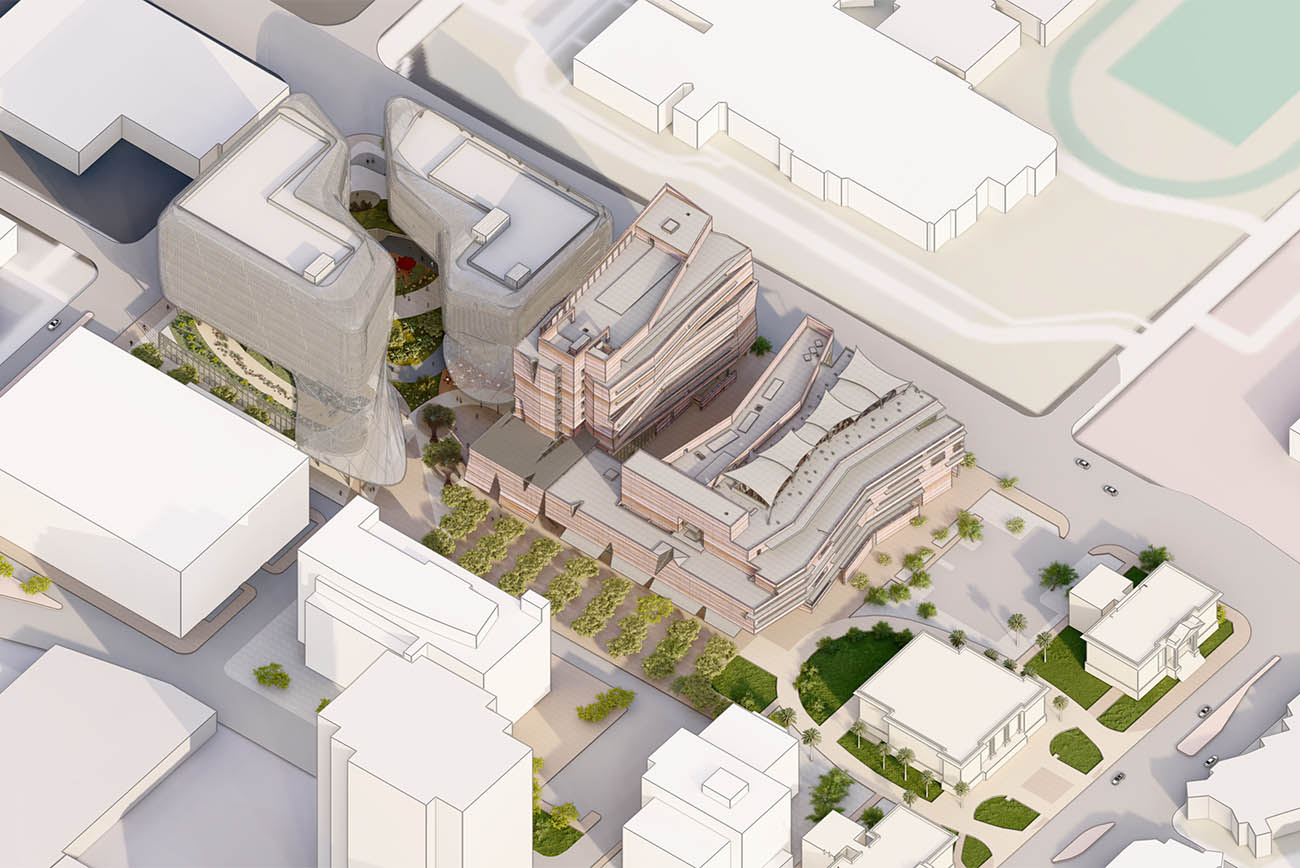
UArizona Health Sciences previews new Center for Advanced Molecular and Immunological Therapies in Phoenix
The University of Arizona offered a new preview of the Center for Advanced Molecular and Immunological Therapies on May 16 as part of its Tomorrow is Here lecture series. The discussion, led by UArizona Health Sciences Vice President Dr. Michael Dake highlighted both the research and economic impacts the new, 10-story facility will have on the region.
“We expect CAMI to be nothing short of a national biomedical research hub, located here in Phoenix,” Dake said. “That’s the goal.”
A new research anchor for the PBC.
The University of Arizona is evaluating the specific areas of research the facility will focus on once it’s open. It is using a small group of academic faculty, community leaders and industry experts to evaluate program areas, design elements and future hires. On a high level, CAMI will have research involved in bioengineering, cancer and immunotherapy, and more. Dr. Dake also emphasized collaborative relationships with the other universities in the state, including ASU, NAU, Creighton, as well as deeper relationships with clinical partners such as the Mayo Clinic, the Translational Genomics Research Institute and others.
The space is being designed to house 42 principal investigators and their teams and 15 bioengineering research teams. The space will include creating synergistic translational research space, clinical research space, startup incubator space and opportunities for commercialization. It will also be home to indoor and outdoor dining on the ground level, meant to make it easier for people to connect outside the classroom, lab or office, Dake said.
The economic impact of CAMI
The University of Arizona commissioned an economic impact study on the project and estimated it will be responsible for bringing at least 7,500 high-paying science jobs, 150 new or relocated companies to Arizona, 13,000 supporting jobs and 4,000 construction jobs.
Preliminary estimates also show a return on investment of 2.5:1 for the area, Dake said. That translates to a $3.9 billion increase in economic activity for the state, and $140 million to $170 million increase in local tax revenue.
“The Center for Advanced Molecular and Immunological Therapies will be a transformational project not only for the Phoenix Bioscience Core, the city and the state of Arizona,” said David Krietor, executive director of the PBC. “I want to thank the University of Arizona’s President Dr. Robert Robbins and Dr. Michael Dake for their focus on the PBC as a place that is uniquely positioned to advance our region’s status as a nationally recognized leader in health and biosciences.”
Starting sooner than later
The Center for Advanced Molecular and Immunological Therapies will begin operations on the Phoenix Bioscience Core fairly quickly. The University of Arizona Health Sciences will be building out a second floor of the UArizona Biomedical Partnership Building equipped with office space and wet labs to begin their research in the near future. Then, once the new buildings are complete, CAMI will relocate and the University of Arizona College of Medicine – Phoenix will move into its space in the Partnership Building. This will allow the University of Arizona and CAMI to begin its potentially life-saving research sooner.
Additionally, the University of Arizona has formed three subcommittees to evaluate various areas of CAMI including leadership and organization; programs and development; and space, design and construction. They are tasked with developing recommendations for a center director, program heads, design elements of the facilities and which areas of research CAMI will focus on, Dake said.
“It will prioritize early translation of trailblazing CAMI research programs to clinical care first and right here in Phoenix. That’s what we want to make sure you take away with this,” Dake said. “We want to stress local outreach to inform community members of advances in immunotherapy now available.”
Watch the entire Tomorrow is Here lecture below and read more about CAMI on the University of Arizona Health Sciences website.
More news from the PBC
- New study seeks to combat national kidney shortage, improve availability for organ transplants
- SEMI, MDM2 to host smart medtech conference in Phoenix from April 22-24
- Innovative Therapy Shows Promise in Reversing Lung Scarring in Idiopathic Pulmonary Fibrosis
- Phoenix City Council Expands Enhanced Municipal Services District to Strengthen Innovation and Growth
- C-Path’s Predictive Safety Testing Consortium Advances a Transformative Test to Detect Drug Induced Liver Injury
- Fuel Your Startup’s Growth: Explore Arizona’s Expanded SBIR/STTR Support
- U of A Center for Innovation Startup ClientsGenerate $664.8M In Economic Output

